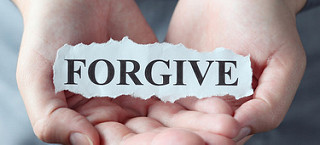We can approach the topic of forgiveness from many angles; some of us may see it through a spiritual lens while others from that of character development. Regardless of our entry point to the topic, the benefits are the same to the forgiving person: increased emotional and physical health. In 2012, researchers from the University of California, San Diego found that forgiveness can help minimize spikes in blood pressure. Others at Duke University and New York University, in related studies, have found correlations between forgiving others and improved immune systems and overall health. Additionally, according to the Mayo Clinic, those who actively forgive transgressors gain greater self-esteem and build stronger relationships.
Sonja Lyubomirsky, University of California, Riverside professor and author of the book The How of Happiness: A Scientific Approach to Getting the Life You Want, defines forgiveness as “a ‘shift in thinking’ toward someone who has wronged you, ‘such that your desire to harm that person has decreased and your desire to do him good (or to benefit your relationship) has increased.”
As parents, it is important that we directly teach our children to forgive others so they may have healthy strong relationships and a good sense of self. Learning to forgive helps children develop the ability to deal with strong emotions, to see the perspective of others, and to gain problem-solving techniques.
With any lesson, practice will ‘make perfect’ as will consistent modeling.
Professor Lyubomirsky suggests that families share stories at the dinner table that can serve as examples of opportunities for forgiveness. To extend the conversation, parents can ask their children: What does it mean to forgive someone? What does forgiveness feel like to you? She also advises that families role-play various scenarios that require children to take the role of the forgiver and forgiven, to help them see the viewpoint of another. Finally, she recommends that parents teach their children how to write a forgiveness letter that states the offense, offers another way the situation could have been handled, and offers a clear statement of forgiveness.
Remember: forgiveness takes strength and practice.
For more resources and information on the topic, visit University of California, Berkeley’s website for The Greater Good Science Center.
Sonja Lyubomirsky, University of California, Riverside professor and author of the book The How of Happiness: A Scientific Approach to Getting the Life You Want, defines forgiveness as “a ‘shift in thinking’ toward someone who has wronged you, ‘such that your desire to harm that person has decreased and your desire to do him good (or to benefit your relationship) has increased.”
As parents, it is important that we directly teach our children to forgive others so they may have healthy strong relationships and a good sense of self. Learning to forgive helps children develop the ability to deal with strong emotions, to see the perspective of others, and to gain problem-solving techniques.
With any lesson, practice will ‘make perfect’ as will consistent modeling.
Professor Lyubomirsky suggests that families share stories at the dinner table that can serve as examples of opportunities for forgiveness. To extend the conversation, parents can ask their children: What does it mean to forgive someone? What does forgiveness feel like to you? She also advises that families role-play various scenarios that require children to take the role of the forgiver and forgiven, to help them see the viewpoint of another. Finally, she recommends that parents teach their children how to write a forgiveness letter that states the offense, offers another way the situation could have been handled, and offers a clear statement of forgiveness.
Remember: forgiveness takes strength and practice.
For more resources and information on the topic, visit University of California, Berkeley’s website for The Greater Good Science Center.

 RSS Feed
RSS Feed
